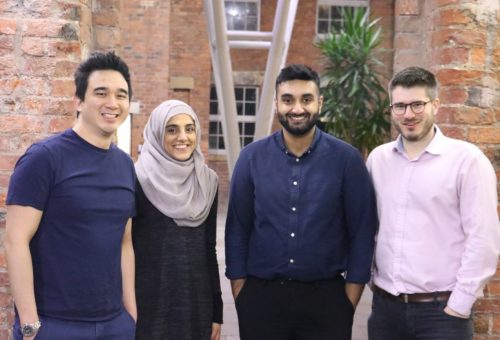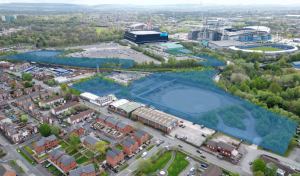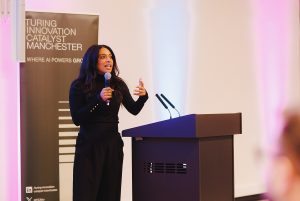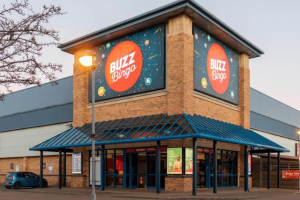Medical device start-up raises £735k for implant to treat brain cancer

A Manchester medical device start-up has raised £735,000 seed funding to advance the development of its innovative implant to treat brain tumours.
QV Bioelectronics is developing a first-of-its-kind electrotherapy implant, QV-GRACE, for the treatment of the most common and aggressive type of brain tumours.
Glioblastoma has a five-year survival rate of four per cent. QV’s device aims to increase this to at least 30%.
Among those affected by Glioblastoma cancer are American politicians John McCain and Beau Biden, son of current US president Joe Biden, and UK MP Tessa Jowell. Even with the best treatments currently, survival is less than a year.
The QV device uses electric fields to provide patients with treatment that is pain free, side-effect free, and continuous and targeted.
The capital will be used to advance development of the QV-GRACE implant, while also expanding the team and accelerating the collection of pre-clinical data.
The preclinical safety and efficacy data will provide preclinical proof of concept and form part of regulatory submission for QV to enter the clinic.
The round was significantly oversubscribed, attracting support from Consilience Ventures, SOSV, Catapult Ventures and several angel investors.
In Consilience Ventures, a VC that takes a very different approach to funding and service support as an integral part of its business model, QV has established a long term partner for growth with a network and knowledge base that aids the company at every stage of development.
SOSV is a global venture capital firm that operates early stage start-up development programmes.
It can provide multi-stage investment to develop and scale QV Bioelectronics while providing the founders with ongoing support and community.
Catapult Ventures, one of the most experienced healthcare and life science VC investors in the UK, join the round via the GM & Cheshire Life Sciences Fund, contributing long term value creation with decades of sector experience and a history of supporting the growth of companies at a seed stage.
Several high net worth investors also lent their significant support to this round.
Ahead of this investment, QV Bioelectronics had raised a mixture of equity and grant funding totalling more than £350,000, including pre-seed funding from SOSV and grants from Innovate UK and the National Institute for Health Research.
QV Bioelectronics is led and co-funded by Dr Christopher Bullock, chief executive, alongside co-founder and clinical director, Mr Richard Fu, an academic neurosurgeon.
They are backed by an expert team of engineers and scientists who have been working closely with some of the UKs leading neurosurgeons on the prototype design of the QV-GRACE device.
QV Bioelectronics is determined to deliver longer, better quality lives for brain tumour patients.
It is hoped that QV-GRACE will provide a paradigm shift in the treatment of glioblastoma, the most common form of primary brain cancer in adults that has amongst the worst outcomes of any type of cancer.
Utilising advanced materials, the technology underpinning the QV-GRACE device is designed to significantly extend patient life expectancy without negatively affecting patient quality of life.
QV-GRACE is still at an early stage of development and it will be several years before the technology is ready to enter clinical trials.
Following the investment, QV welcomes Dr Deepak Kotak of Consilience Ventures to the board of directors.
QV chief executive, Dr Christopher Bullock, said: “This investment is a vote of confidence in QV Bioelectronics from sector-expert investors.
“The funds raised will fuel the next phase of development of the QV-GRACE device, allowing the size of the QV Bioelectronics team to grow in the process.
“This will take our innovative electrotherapy technology a few steps closer towards the clinic.”
Deepak Kotak said: “We are excited to be supporting QV Bioelectronics advance an elegant and novel technology to help improve longevity and quality of life of GBM patients, an area of huge and longstanding unmet medical need.”








